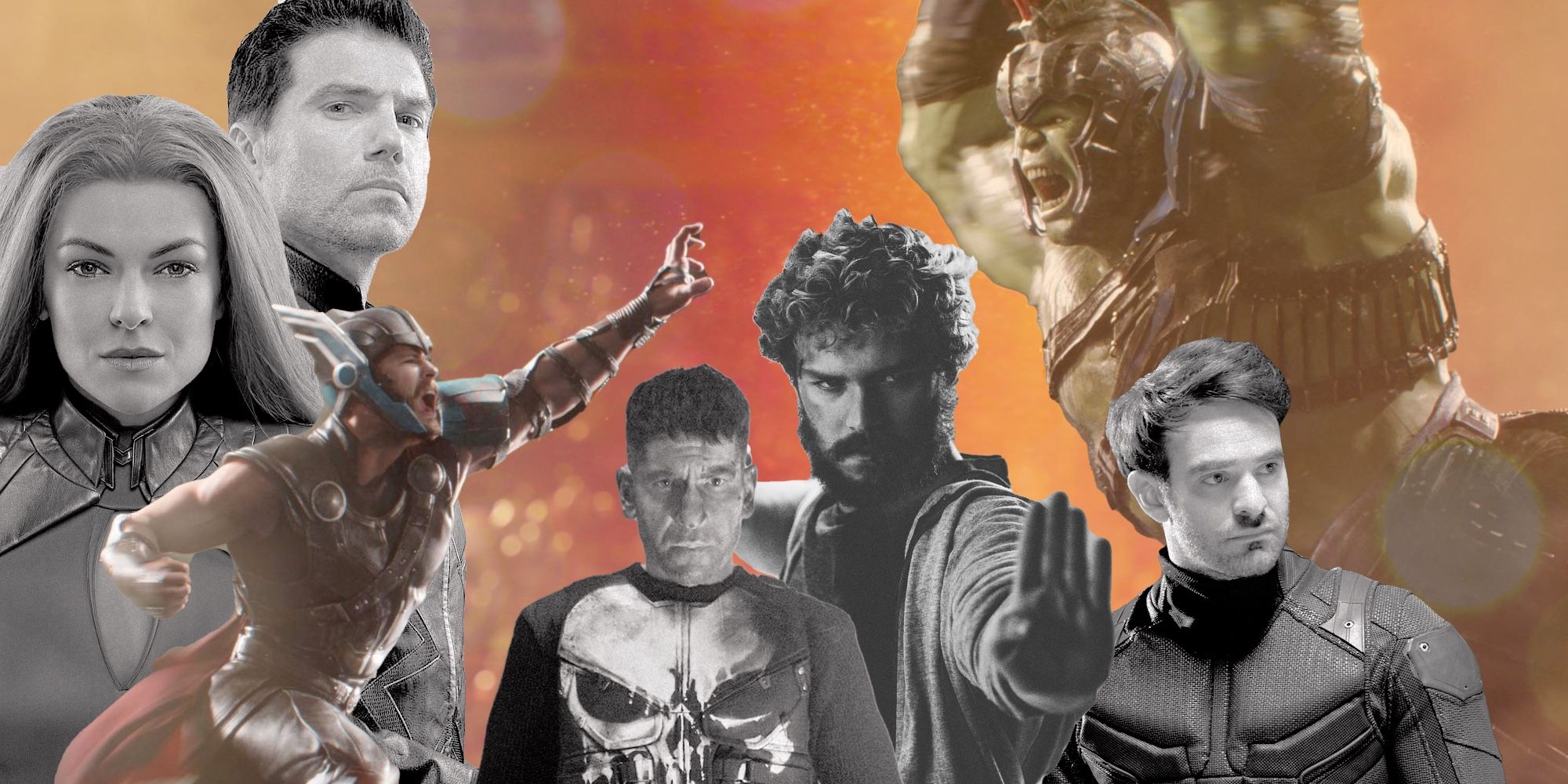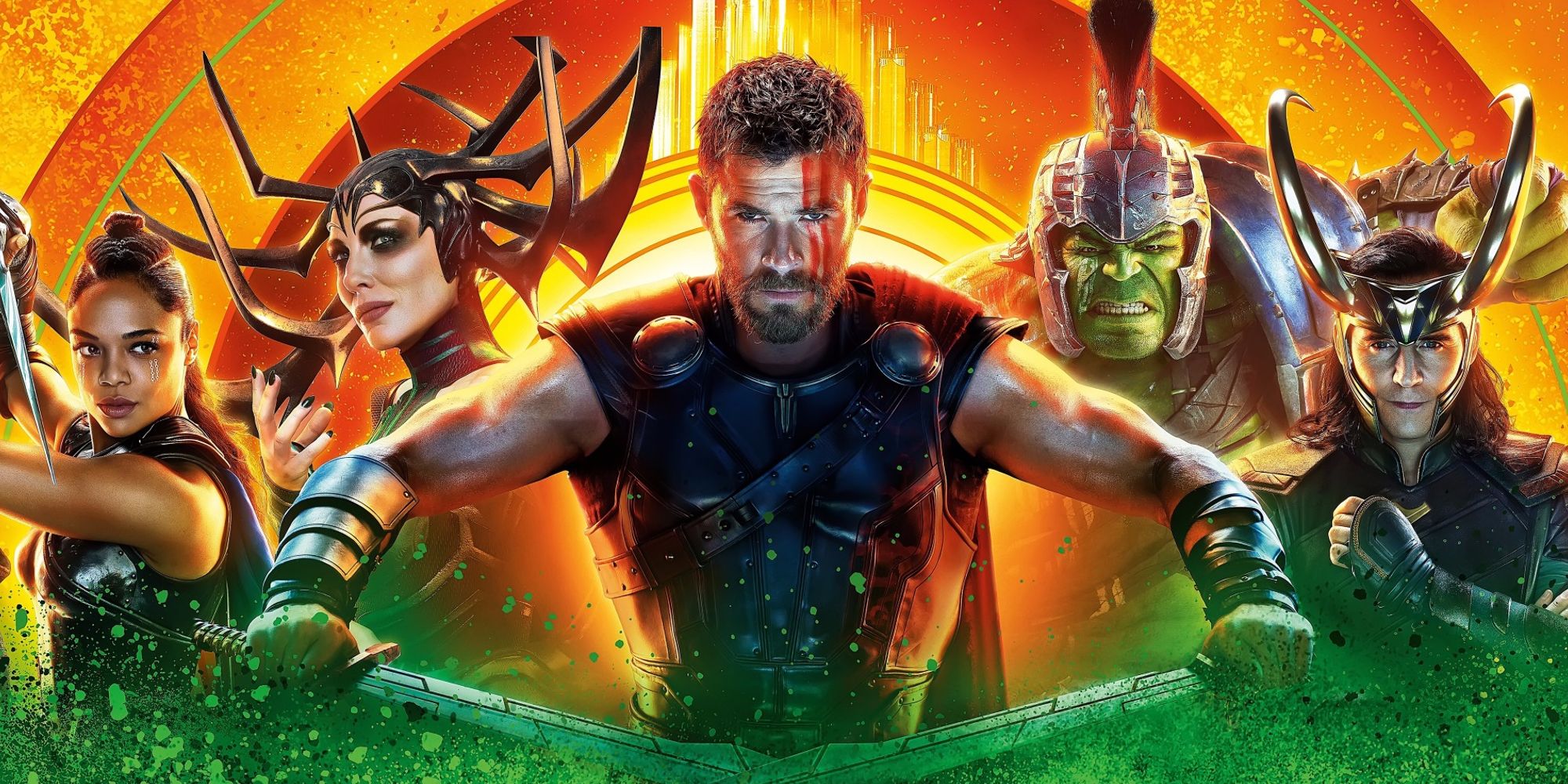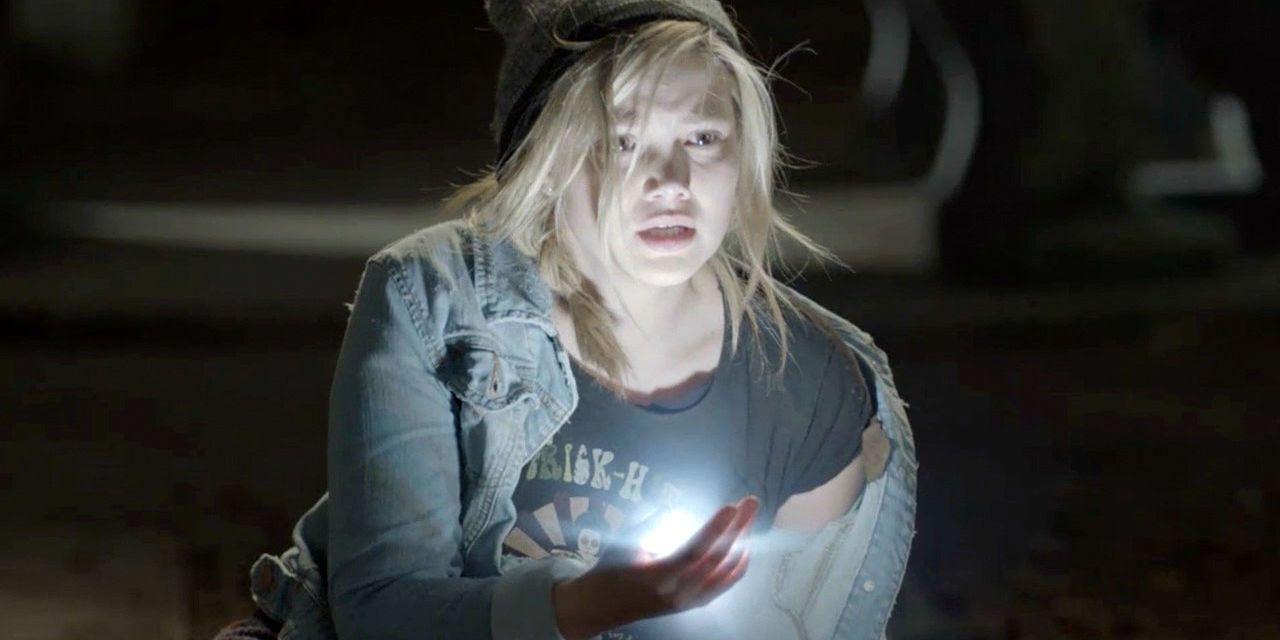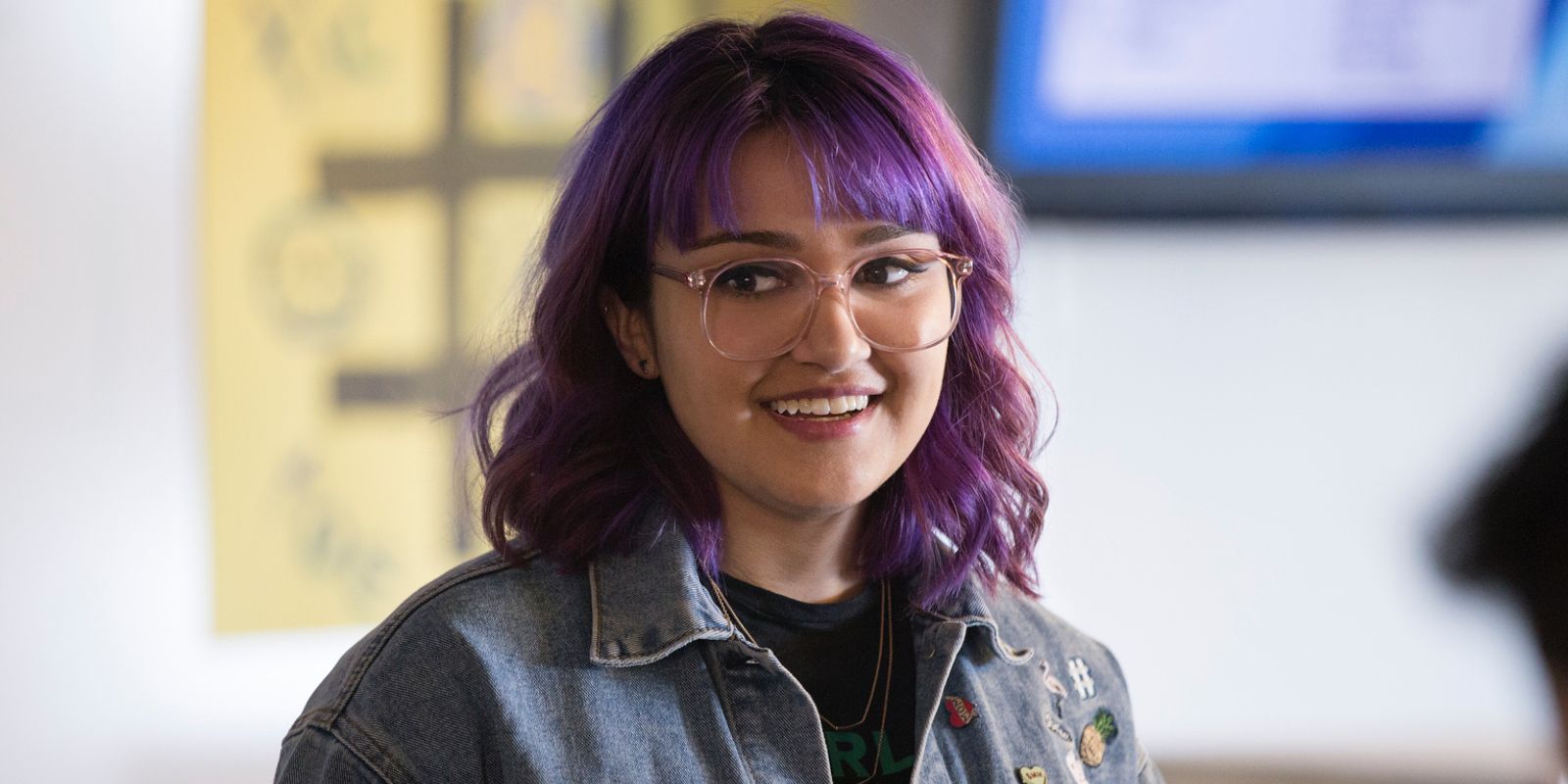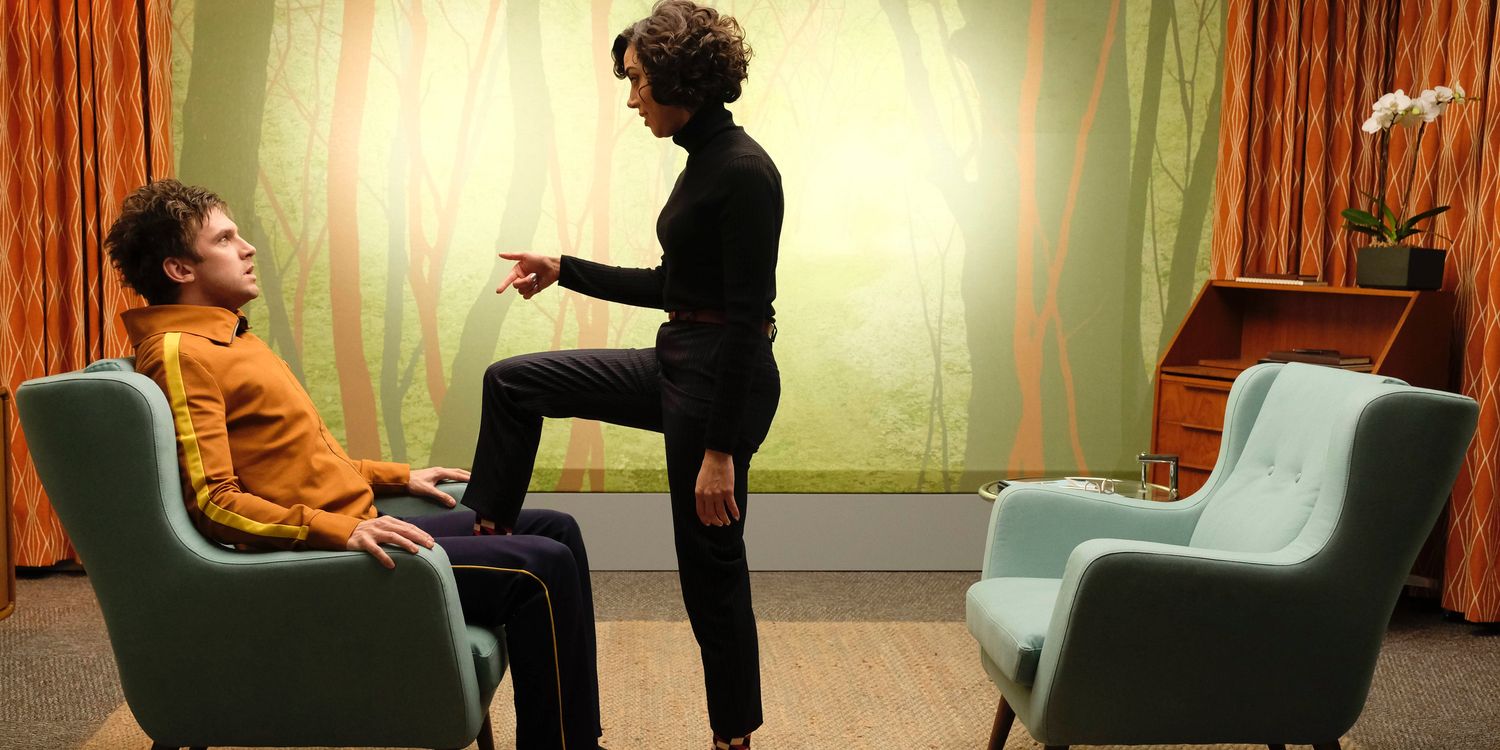2017 has seen a lot of ups and downs for Marvel TV. While the movie side of the MCU soared with fun, energetic releases like Guardians of the Galaxy 2, Spider-Man: Homecoming, and the effervescent Thor: Ragnarok, Marvel TV delivered unto audiences the kicky man-child known as Danny Rand in the objectively awful first season of Iron Fist. That was followed up with the slow, uneven, and underwhelming eight-episode event The Defenders, which wasn't The Avengers-like gathering of heroes it was intended to be. But even with those disappointments (minor though one was), Marvel TV may have hit rock bottom with an ill-fated attempt to do what even the film side of things thought was a bad idea: try to adapt the Inhumans into a summertime event.Sure, the TV side of the mighty Marvel U didn't strike out completely in 2017. Agents of S.H.I.E.L.D. earned a fifth season renewal, and the studio was tangentially involved in FX's mutant bong hit Legion, as well as FOX's promising The Gifted. Meanwhile, Hulu recently launched Runaways, which combines YA appeal and a dinosaur with a nose ring, and not long after, Frank Castle was bloodying things up with The Punisher on Netflix. The latter two are arguably more important because they come from the studio itself, but they have been serviceable and workman-like so far without necessarily wowing or offering genuinely spellbinding takes on the source material ” all of which implies that television series bearing the Marvel banner could use a creative jumpstart. More to the point: after the success of Taika Waititi's Thor outing, the Marvel TV line-up could stand to experience a Ragnarok of its own.
Related: Thor: Ragnarok Almost Lost Jeff Goldblum as Grandmaster
At first glance, the idea of a third Thor film seemed more than a little perfunctory and unnecessary. Marvel found reasonable success with Chris Hemsworth's solo outings as the God of Thunder in the past, and the character has been a welcome addition to team-ups, like The Avengers and Avengers: Age of Ultron, so ensuring Odinson received a trilogy just as Steve Rogers and Tony Stark did, made sense from a business standpoint. But what did the studio have to offer to make another Thor movie appealing beyond the promise of more? More, more, more has been a large part of Marvel's success since Nick Fury first approached Tony Stark about the Avengers Initiative, but after nearly a decade of churning out movies, the simple appeal of more isn't going to cut it forever. And to its credit, Marvel Studios' film division took a step (or sidestep) in the right direction to address that concern, turning Thor into a bright, colorful, and incredibly playful intergalactic buddy film that borrowed from and improved upon the gleeful comedy of everything from Whedon's quippy dialogue in the Avengers films to the likable oddballs of James Gunn's Guardians of the Galaxy.
The average audience-goer's individual mileage with Ragnarok notwithstanding, it's difficult to deny the creative spark Waititi's efforts granted a character whose solo movies have otherwise been largely paint-by-numbers. Thor was a serviceable introduction, while Thor: The Dark World took its title literally, and in doing so came away with a leaden excursion set against another forgettable Marvel villain. Ragnarok, by comparison, refused to buckle under the narrative weight of its title, and instead counterbalanced the ponderous notion of the Asgardian end of days with a luminous Jeff Goldblum, an audacious Tessa Thompson, and a gamma-irradiated bromance between the MCU's two heaviest hitters.
Marvel TV's recent creative output feels somewhat stale in comparison. Though its most recent offering, The Punisher, is a technically proficient series with a great leading man in Jon Bernthal, the first season never completely made a compelling case for its existence beyond being a property Marvel owned and could make use of. Furthermore, as the fourth live-action iteration of the character, the series ” and more to the point, Marvel ” needed to impress at a level higher than simply not disappointing. Fans appear to be responding to The Punisher positively enough, but after the misadventures of Danny Rand and the failure of Inhumans, Marvel could have put up nine hours of Frank Castle eating breakfast while reading the back of a cereal box and been met with more thumbs pointing up than down.
With The Punisher having come and gone for the most part (as these series tend to do on Netflix) and Runaways moving steadily through its first season on Hulu, the focus turns to what Marvel has coming up next for its TV division and whether or not anything stands to reinvigorate the brand or if it will just be business as usual. New seasons of Daredevil, Jessica Jones, and Luke Cage are on the way, but there's no reason to expect these series plan to upend the familiar Marvel-Netflix 13-hour formula at this point.
Cloak & Dagger is on the way from Freeform and New Warriors is currently looking for a new home. The latter series had been labeled as a comedy, which could have been precisely the shot in the arm the TV side of the MCU needed in order to stimulate its lineup. The former, however, is another question, as what's been seen so far looks to be leaning into a darker, more serious tone set against a familiar superheroes-on-the-run premise. Cloak & Dagger isn't set to premiere for another few months, so hopefully in that time there'll be a hint that showrunner Joe Polaski is working to bring an enticing element we haven't seen yet to the series. That's the priority at this point, as the show's headlining act is comprised of the same C-level characters Inhumans was, and as that misadventure demonstrated, it takes more than a serving of characters Marvel insists are worthy of their own television series to be watchable. Like Runaways, Cloak & Dagger can capitalize on its YA sensibilities to bring in viewers, but Marvel TV could use more than sound ratings; it needs a series that gets everyone talking. Marvel could stand to produce a sparkling, mold-breaking consensus show on par with Thor: Ragnarok.
If the response to Marvel's repositioning of Thor as an intergalactic comedy that puts fun first and plot a distant second is any indication, even the most casual Marvel viewer (which is pretty much anyone who goes to movies or watches television these days) is hungry for a new spin on a familiar character or franchise. It's a winning approach that could be replicated on the television side of things, and would mean executing a creative vision for characters that goes beyond simply packaging them under the Marvel banner and assuming the faithful will keep coming back for more.
It certainly seems like that was part of the downfall for Inhumans and Iron Fist. For his part, Scott Buck's entrée into the MCU began with the damned if he did, damned if he didn't martial arts mess, which was then inexplicably followed up an IMAX-sized misstep the same year. Buck is a veteran showrunner, with credits like Nurse Jackie and Dexter, who has also written for shows like Six Feet Under, Rome, and Everybody Love Raymond, and is, by all accounts, as qualified as anyone to bring a Marvel show to the screen. But, for whatever reason, be it unreasonable time constraints or a failure to properly execute his vision, things just didn't work out. And at this point, with Raven Metzner set as the new showrunner for Iron Fist season 2, and Inhumans looking like a one-and-done event, Buck's future with the studio seems uncertain.
But Metzner's placement in charge of Iron Fist and Daredevil welcoming its third showrunner in as many seasons points to an element missing from a lot of Marvel's television lineup: an authorial voice with a distinct point of view. In other words, Marvel TV could really use a Taika Waititi. Right now, Noah Hawley's handling of Legion is the closest thing TV has to that, but the series is so far outside the MCU ” not to mention anything resembling a cinematic version of the X-Men universe ” it doesn't really count. At the time of its premiere, Legion's idiosyncratic look, tone, and execution were a welcome disruption; it felt innovative, even if only superficially so. That's not too far removed from the end result of Thor: Ragnarok, and that film's director has largely been credited with its success, just as Legion's has been chalked up to Hawley. Marvel would do well to seek out showrunners who are looking to deliver a comic book property along those lines.
Both were risks for the seemingly risk-averse Marvel (though we'll have to put an asterisk next to Legion), but they were risks that paid off. And while Marvel's film division is riding an unprecedented winning streak, after the year it's had, Marvel TV could stand to take more risks. The Punisher and Runaways are fine; they're good enough but they're also relatively safe from a creative standpoint. And with comic book adaptations dominating film and television to the degree that they are, the day is coming when good enough won't be.

